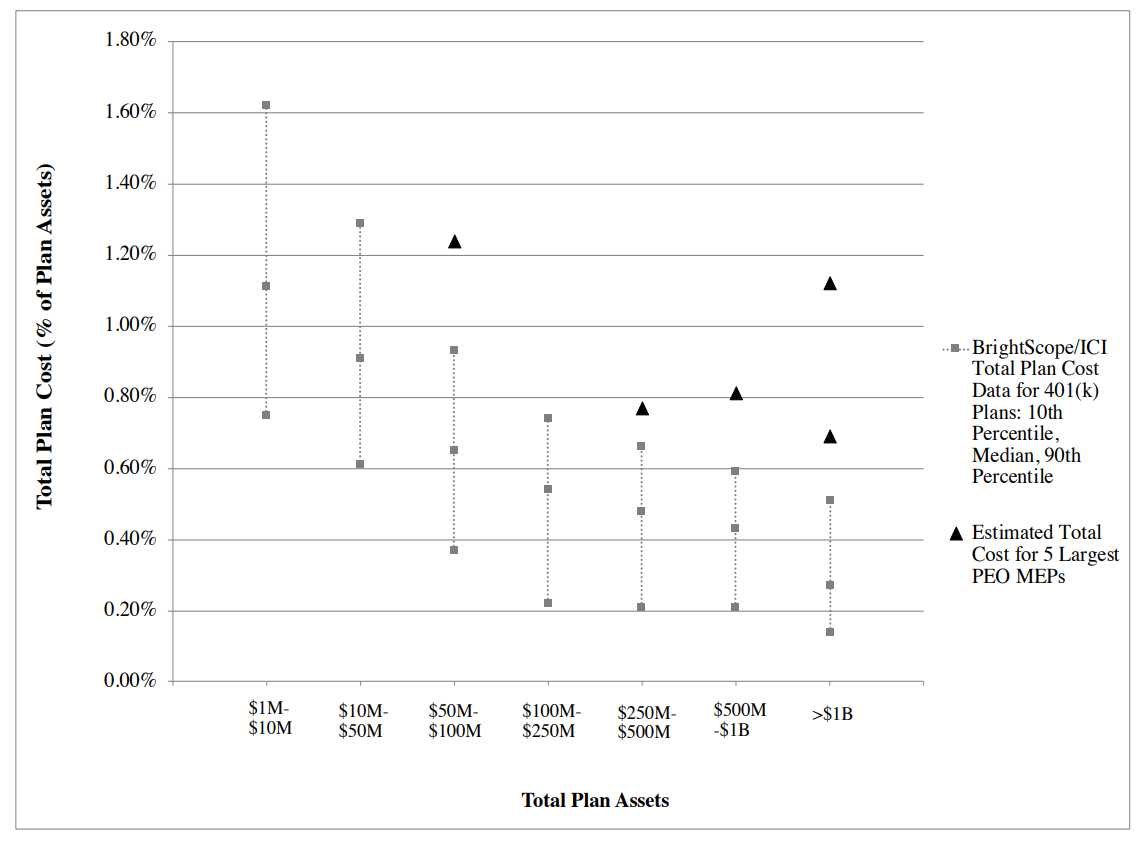What is a Multiple Employer Welfare Arrangement (MEWA)?

A Multiple Employer Welfare Arrangement (MEWA) is a type of health benefit plan that allows small businesses to join together to provide health insurance coverage to their employees. MEWAs are governed by specific regulations and rules to ensure compliance and protect the interests of the participants.
Definition and Purpose
A MEWA is defined as an arrangement where multiple employers pool their resources to provide health benefits to their employees. It is typically formed by businesses in the same industry or geographic area to leverage their collective bargaining power and negotiate better rates and coverage options with insurance providers.
The purpose of a MEWA is to offer small businesses access to affordable health insurance plans that may not be available to them individually. By joining forces, these businesses can achieve economies of scale, reduce administrative costs, and increase their bargaining power in the insurance market.
Benefits and Features
Participating in a MEWA offers several benefits and features for small businesses:
- Cost savings: By pooling their resources, businesses can negotiate lower premiums and administrative fees, resulting in cost savings for both employers and employees.
- Choice and flexibility: MEWAs often offer a range of coverage options and benefit packages, allowing employers to choose the plans that best meet the needs of their employees.
- Administrative simplicity: MEWAs handle the administrative tasks associated with health insurance, such as enrollment, claims processing, and compliance with regulatory requirements, relieving small businesses of these responsibilities.
- Stability and continuity: MEWAs provide a stable source of health insurance coverage, even if individual businesses experience fluctuations in their workforce or financial situation.
- Compliance and oversight: MEWAs are subject to specific regulations and oversight to ensure they meet the necessary standards for financial stability, solvency, and consumer protection.
A Multiple Employer Welfare Arrangement (MEWA) is a type of health benefit plan that allows small businesses to join together to provide health insurance coverage to their employees. MEWAs are regulated by the Small Business Administration (SBA) and must comply with certain rules and regulations.
The definition of a MEWA is important because it determines whether a health benefit plan qualifies as a MEWA and is subject to the regulations. According to the SBA, a MEWA is defined as a plan that is established or maintained by two or more employers who are not related to each other and who join together to provide health benefits to their employees.
There are several key rules that govern MEWAs. First, the participating employers must have a commonality of interest, such as being in the same industry or geographic area. This helps ensure that the MEWA is serving a specific group of employers and their employees.
Second, the MEWA must be controlled by the participating employers. This means that the employers have the authority to make decisions regarding the plan, such as selecting the insurance carrier and determining the benefits and premiums.
Third, the MEWA must be operated for the exclusive benefit of the participating employers and their employees. This means that the plan cannot be used for any other purpose, such as providing benefits to non-employees or generating profits for the plan administrators.
Finally, the MEWA must comply with all applicable federal and state laws, including the Employee Retirement Income Security Act (ERISA) and the Affordable Care Act (ACA). This ensures that the plan meets minimum standards for coverage and consumer protections.
Small Business Regulations for MEWAs
1. Registration and Reporting
Small businesses that participate in a MEWA must comply with registration and reporting requirements. This includes providing detailed information about the MEWA, such as its structure, funding, and benefits offered. Failure to register or report accurately can result in penalties and legal consequences.
2. Financial Stability

MEWAs must demonstrate financial stability to ensure that they can meet their obligations to participants. Small businesses should carefully review the financial status of the MEWA before joining to ensure that it is financially sound and capable of providing the promised benefits.
3. Compliance with State and Federal Laws
Small businesses participating in a MEWA must comply with both state and federal laws governing employee benefits. This includes laws related to health insurance, ERISA (Employee Retirement Income Security Act), HIPAA (Health Insurance Portability and Accountability Act), and other relevant regulations. Non-compliance can result in legal consequences and penalties.
4. Fiduciary Responsibilities
Employers participating in a MEWA have fiduciary responsibilities to act in the best interests of their employees. This includes carefully selecting and monitoring the MEWA to ensure that it is providing quality benefits at a reasonable cost. Employers should also regularly review the performance and financial stability of the MEWA and make changes if necessary.
5. Employee Communication
Small businesses must effectively communicate with their employees about the MEWA and the benefits it offers. This includes providing clear and accurate information about eligibility, coverage, costs, and any changes to the plan. Employers should also have a process in place for addressing employee questions and concerns regarding the MEWA.
6. Compliance Monitoring
Small businesses should regularly monitor their compliance with MEWA regulations and requirements. This includes staying up to date with any changes in laws or regulations that may affect the MEWA. Employers should also conduct periodic audits and reviews to ensure ongoing compliance.
Compliance Requirements and Guidelines

Participating in a Multiple Employer Welfare Arrangement (MEWA) comes with certain compliance requirements and guidelines that small businesses need to be aware of. These requirements ensure that the MEWA operates within the legal framework and provides the necessary benefits to its members.
1. ERISA Compliance
MEWAs are subject to the Employee Retirement Income Security Act (ERISA), which sets standards for pension and welfare benefit plans. Small businesses participating in a MEWA must ensure that the arrangement complies with ERISA regulations, including reporting and disclosure requirements.
2. State Insurance Regulations
MEWAs are also subject to state insurance regulations, which vary from state to state. Small businesses need to understand and comply with these regulations to operate within the legal boundaries. This may include obtaining proper licenses and meeting solvency requirements.
3. Financial Responsibility
Participating in a MEWA requires small businesses to meet certain financial responsibilities. This includes paying premiums on time and contributing to the funding of the arrangement. Failure to meet these financial obligations can result in loss of coverage for the business and its employees.
4. Compliance with Anti-Discrimination Laws
5. Reporting and Disclosure Requirements

MEWAs are required to provide certain reports and disclosures to both the federal government and participating employers. Small businesses must be aware of these requirements and ensure timely and accurate submission of the necessary documents.
Complying with these requirements and guidelines is essential for small businesses participating in a MEWA. It helps ensure that the arrangement operates legally and provides the intended benefits to its members. Small businesses should consult with legal and insurance professionals to fully understand and meet these compliance obligations.
Benefits of Participating in a MEWA
Participating in a Multiple Employer Welfare Arrangement (MEWA) can offer several benefits for small businesses. MEWAs provide a way for small employers to join together and offer their employees access to affordable health and welfare benefits.
One of the main advantages of participating in a MEWA is cost savings. By pooling resources with other small businesses, employers can negotiate better rates with insurance providers and reduce administrative costs. This can result in lower premiums for employees, making healthcare more affordable for everyone.
MEWAs also provide increased flexibility and choice in benefit options. Small businesses often struggle to offer comprehensive benefits packages due to limited resources. However, by participating in a MEWA, employers can access a wider range of benefit options, including health insurance, dental coverage, vision care, and more. This allows small businesses to compete with larger companies in attracting and retaining top talent.
Another benefit of MEWAs is simplified administration. Managing employee benefits can be complex and time-consuming for small businesses. MEWAs handle many administrative tasks, such as enrollment, claims processing, and compliance with regulatory requirements. This frees up valuable time and resources for small business owners to focus on other aspects of their operations.
Participating in a MEWA also offers increased purchasing power. By joining forces with other small employers, businesses can leverage their collective buying power to negotiate better rates and terms with insurance providers. This can result in more comprehensive coverage and additional benefits for employees.
Lastly, MEWAs provide a sense of community and support for small businesses. By participating in a MEWA, employers can connect with other like-minded businesses and share best practices. This networking opportunity can lead to valuable partnerships and collaborations, as well as access to resources and expertise that may not be available to individual small businesses.

Emily Bibb simplifies finance through bestselling books and articles, bridging complex concepts for everyday understanding. Engaging audiences via social media, she shares insights for financial success. Active in seminars and philanthropy, Bibb aims to create a more financially informed society, driven by her passion for empowering others.
